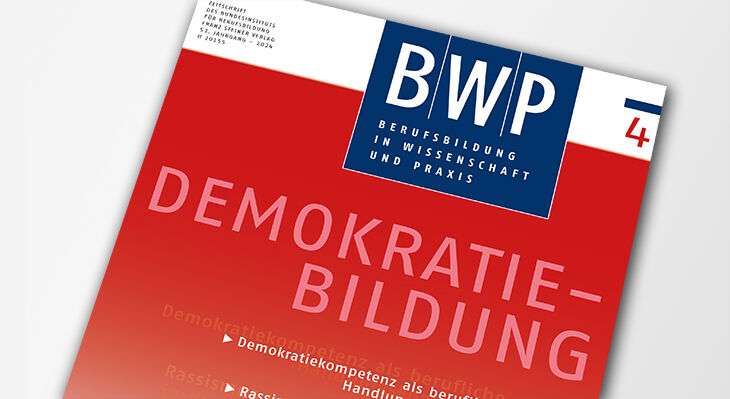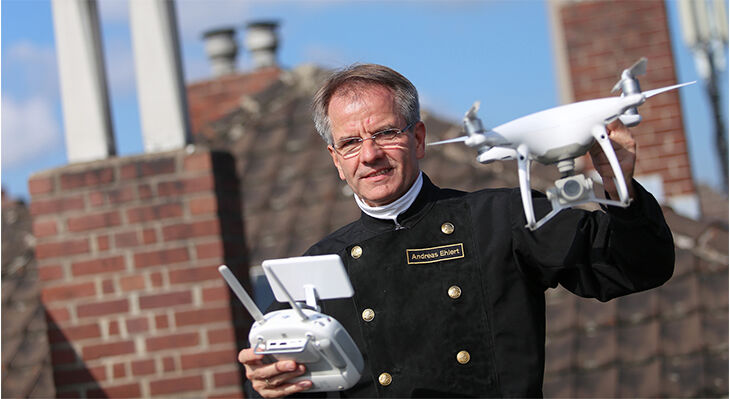What is the BIBB's role?
The Federal Institute for Vocational Education and Training (BIBB) is the recognised centre of excellence for the research and further development of initial and continuing vocational education and training in Germany. BIBB identifies the future tasks and challenges within VET, promotes innovation in national as well as international vocational education and training and develops new practice-oriented solutions for initial and continuing VET.
BIBB Building
Overview
Organisation
The Research Council advises the Board by producing official responses and recommendations relating to the research work of BIBB, in particular with regard to the Research Programme and cooperation with institutes of higher education and with other research institutions.
As well as exercising the role of an executive body at BIBB, the Board also acts as the statutory advisory body to the Federal Government in all fundamental issues relating to vocational education and training. The BIBB Board includes representatives of the employers, the trade unions, the federal states and the Federal Government (“benches”), all of whom have equal voting rights.
BIBB is led and managed by its President. The President works in conjunction with the Board, with the sub-committees of the Board and with the Research Council to carry out the tasks of the institute. Professor Dr. Friedrich Hubert Esser has been President of the Federal Institute for Vocational Education and Training since May 2011. Prof. Dr. Hubert Ertl became Director of Research in September 2017 and is thus responsible for all research conducted by the institute.
Fields of activity
BIBB works with experts from occupational practice to develop and update initial and advanced training regulations for recognised vocational qualifications. The spectrum of regulatory instruments ranges from training regulations for the vocational education and training of disabled persons to advanced training qualifications at Master’s level. Occupational research analyses and evaluations of existing regulatory instruments form the basis of the regulatory work. BIBB uses implementation guides and the Leandro Portal to support companies in delivering high-quality training. It also continues to assume statutory tasks within the scope of the nursing professions and the Distance Learning Protection Act.
BIBB supports and advises the Federal Government and makes its expertise available to elected members of the Bundestag and of the state parliaments. The main focus here is on contributions to the annual Federal Government Report on Vocational Education and Training and on BIBB’s Data Report, which is published at the same time. In this way, BIBB also fulfils its statutory remit as a departmental research institute. BIBB also brings its expertise to bear in policy consultancy at an international level, e.g. for the European Union and for governments and partner institutions all over the world.
BIBB uses funding from the BMBF and BMAS in particular to finance programmes and projects for the development and piloting of pioneering concepts for initial and continuing VET and for vocational orientation. Inter-company vocational training centres, for example, receive support for construction and equipment projects and for further content development. One of the vehicles via which this takes place is the INex-ÜBA initiative. The aim of the InnoVET series of projects are to enhance the attractiveness, quality and equivalence of vocational training and to initiate new cooperation arrangements between learning venues. The Vocational Orientation Programme provides young people with practically related insights into working life, and the Service Centre of the Youth Employment Agencies offers guidance and integration provision to support individual agencies at a local level. BIBB’s pilot projects also help to enshrine sustainability within initial and continuing training. The respective work results produced by the programmes and service agencies are processed for transfer into practice so that all parties addressed are able to benefit from the solutions and innovative concepts.
The research conducted by BIBB investigates developments and structures in vocational training in a continuous and systematic way. Important topics include the situation on the training market, transitions to VET, competency development and the significance of continuing vocational education and training. Instruments such as the Labour Force Survey and the Training Panel have been created in order to collect relevant data on a regular basis.
BIBB collaborates closely with the institutes of higher education and with other institutions in research and also in the teaching and fostering of young academic research talent. The Research Data Centre (FDZ) provides access to BIBB research data for external academics.
BIBB observes and analyses the development of vocational education and training at a European and at an international level. For this purpose, experts from BIBB conduct research, development and consultancy projects aligned to themes such as the BIBB topic clusters. BIBB maintains a cooperation network comprising more than 30 VET institutions from all over the world. It is an active member of the UNESCO-UNEVOC Network, UNESCO’s International Centre for Technical and Vocational Education and Training, and regularly collaborates with the European Commission, with the European Centre for the Development of Vocational Training (CEDEFOP) and with the European Training Foundation (ETF). BIBB acts as a point of contact for questions relating to international cooperation in VET via the German Office for International Cooperation in Vocational Education and Training (GOVET). The BMBF initiative iMOVE supports German initial and continuing training providers in their internationalisation. The National Agency Education for Europe at BIBB implements the European Erasmus+ educational programme and funds international mobility for learning purposes. With regard to measures aimed at managing the immigration of skilled workers, BIBB supports the Federal Government with the implementation of recognition of professional and vocational qualifications acquired abroad.
Department 3 - VET International
Govet International
NA-BIBB
iMOVE Germany
How can we assist you?
Whether you are interested in vocational education and training in Germany, European vocational education and training policy, background information or statistical data - the BIBB has competent contacts available to help!
Social Media
Frequently Asked Questions (FAQ)
Contact
Directions to BIBB
Directions to the Federal Institute for Vocational Education and Training







